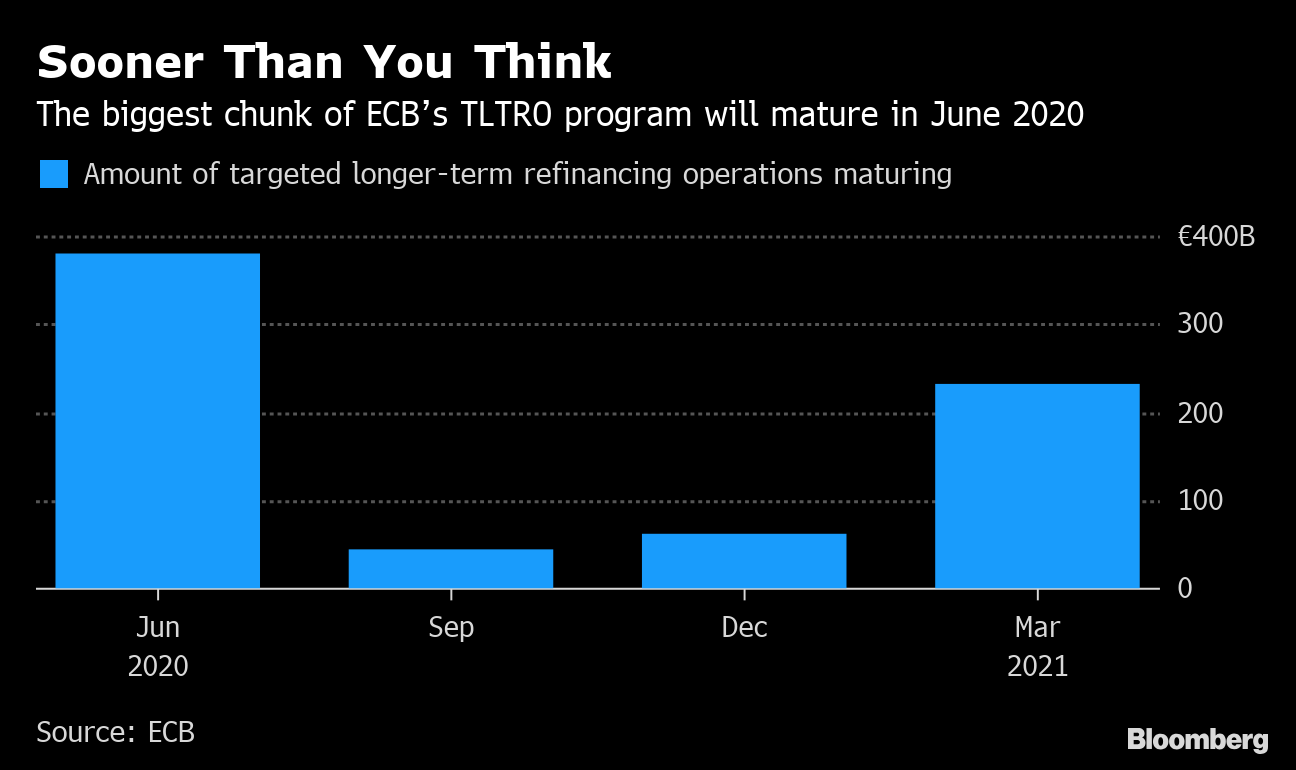Mar 7, 2019
ECB unleashes support package for economy threatened by slowdown
, Bloomberg News

The European Central Bank said it will offer more cheap loans to banks and keep interest rates at record-lows for longer as a weakening economy derails its plan to withdraw stimulus.
Becoming the latest central bank to capitulate to slowing demand, President Mario Draghi and fellow policy makers will offer banks the first round of long-term loans since 2016, starting in September. Officials left their key interest rates unchanged, and said they’ll stay at current levels through the end of the year, several months later than previously anticipated.
The decision came just three months after the ECB halted its crisis-era bond-buying program and signaled it may raise borrowing costs later this year. The change of gears reflects slowdowns in large economies such as Germany and Italy amid the global rise of protectionism and populism.
Draghi is set to reinforce the sense of concern when he unveils new forecasts at a press conference at 2:30 p.m. in Frankfurt. Bloomberg News reported on Wednesday that the latest projections show extensive downgrades for inflation and economic expansion in 2019 with a pickup anticipated toward the end of the year.

The euro dropped to a three-week low and bank stocks erased their decline after the announcement. The single currency was down 0.3 percent to $1.1275 as of 2:10 p.m. Frankfurt time.
A recession in Italy, a near-recession in Germany and pressure from global trade tensions have Brexit have left the euro-area economy in a weakened condition. While some surveys have shown signs of stabilization recently, sharp declines in key indicators since last year have raised the alarm about the health of the region.
The ECB is therefore reviving its Targeted Longer-Term Refinancing Operations with the intention of encouraging banks to provide credit to businesses and customers across the euro-region. The loans will have a maturity of two years, and the interest rate will be indexed to the main-refinancing rate over the life of each operation.
Similar to previous offers, the program will have built-in incentives to assist credit conditions. Financial institutions took up more than 700 billion euros ($788 billion) in the second TLTRO, launched in 2016. The tool is now in its third incarnation, on terms which seem less favorable than before.
Since the ECB said in January that risks to the outlook moved to the downside, a number of policy makers have voiced concern over the economy and said they were discussing a possible response.
However, there was speculation that the ECB would hold out and not make an announcement today. Some economic numbers have shown signs of stabilizing recently after sharp drops in previous months.
Waiting would allow more time for one-time factors that hit 2018 growth to fade, while there’s also been some progress in U.S.-China talks to prevent a worsening of their trade dispute.
What Bloomberg’s Economists Say
“The Governing Council’s decision today shows it’s taking the slowdown in the euro-area economy seriously, but the measures fail to offer a material fresh stimulus.” -- Jamie Murray and David Powell, economists
--With assistance from Carolynn Look, Nicholas Comfort, Brian Swint, Zoe Schneeweiss, William Horobin, Martin M. Sobczyk, Lukas Strobl, Alexander Kell, Chad Thomas, Iain Rogers, David Goodman, Lucy Meakin, Jill Ward, Catherine Bosley, Marcus Bensasson and Kevin Costelloe.